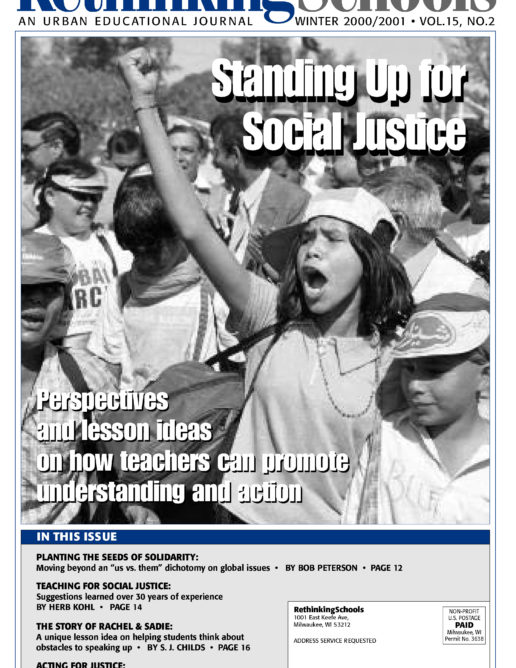Preview of Article:
Bilingual Education: Strike Two
Arizona voters follow California's lead and mandate English-only programs.
Frustrated by the way California’s law has been interpreted – nearly 170,000 students, or 12 percent of English learners, have won the right to continue in bilingual classrooms there – Unz made Proposition 203 more restrictive in numerous ways. Among other things, the initiative:
- Prohibits any “teaching of reading, writing, or subject matter” and the use of “books and instructional materials” in a language other than English.
- Restricts “waivers” of the English-only rule, for children under age 10, to those with “physical or psychological handicaps” – i.e., special education students; only for older children would schools be given flexibility to exercise their “informed belief” about what’s best for the student.
- Allows parental waiver requests to be denied “without explanation or legal consequence.”
- Requires English learners to be reassigned to mainstream classrooms once they have acquired “a good working knowledge of English” (a standard that remains undefined).
- Repeals all Arizona statutes governing the education of English language learners, including standards of student assessment, teacher training, program accountability, parental choice, and other civil rights guarantees.
- Mandates English language achievement tests for all Arizona students, regardless of their English proficiency.
- Invites lawsuits to enforce the initiative by any “parent or legal guardian of any Arizona school child.”
- Holds educational administrators and school board members who violate the law liable for personal financial damages, which could not be paid by an insurance policy or other third party.
- May never be repealed by the Arizona legislature; while amendments to “further the purposes” of the law will require a three-fourths “super majority” vote in both houses, substantive changes will require passage of another statewide ballot measure.
Opponents of Proposition 203 began organizing more than two years before the election, determined to avoid the strategic mistakes of their California colleagues in combating Ron Unz. In particular, they resolved to mount a vigorous defense of bilingual education and to organize a strong grassroots effort among the program’s core constituencies.
Arizonans stressed the injustice of denying language-minority parents a say in their children’s education in a state where the principle of school choice is virtually sacrosanct. Out of about 140,000 English learners in the state’s public schools, 45,000 – or 32 percent – are now enrolled in bilingual education, at the discretion of parents and local districts. Unlike California, Arizona has never imposed a statewide mandate for bilingual education or any other program for teaching these students.
The initiative’s opponents also highlighted the potentially devastating impact on programs aimed at revitalizing Native American languages. All of the state’s 21 tribal languages are threatened with extinction because most Indian children grow up speaking only English. Up until now, the Navajo, Tohono O’odham, Apache, Hualapai, and other tribes had placed hopes for reversing this trend on bilingual education as well as Native language immersion. Under Proposition 203, they may be forced to dismantle these programs.
Despite the strong arguments mustered by opponents, regional and political rivalries sabotaged hopes of building a unified campaign. Four major groups vied for leadership of the “No on 203” forces, complicating the tasks of raising campaign funds and communicating a coherent message. Because resources were limited – less than 10 percent of what opponents of the California initiative had raised in 1998 – so was TV advertising to educate the electorate. By a slight margin, opponents appear to have outspent the English for the Children forces. But Ron Unz, looking at lopsided opinion polls, saw little need for a paid media effort.</p

